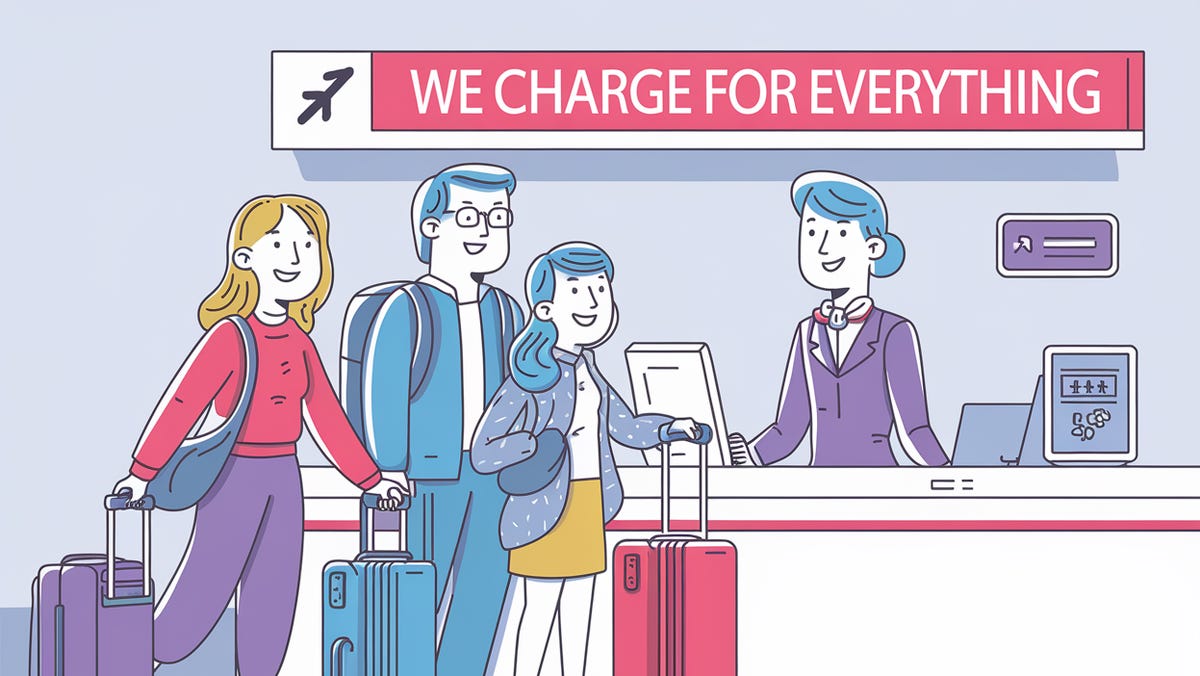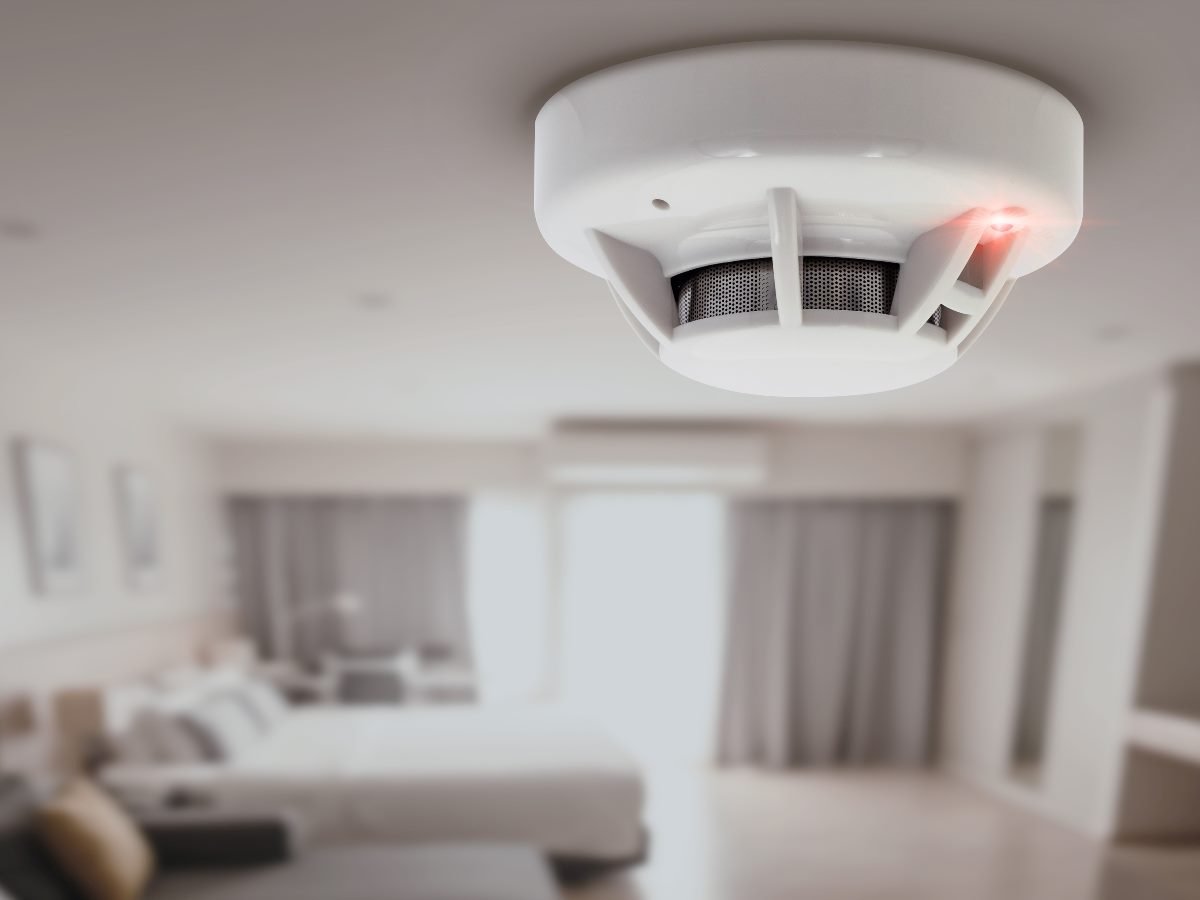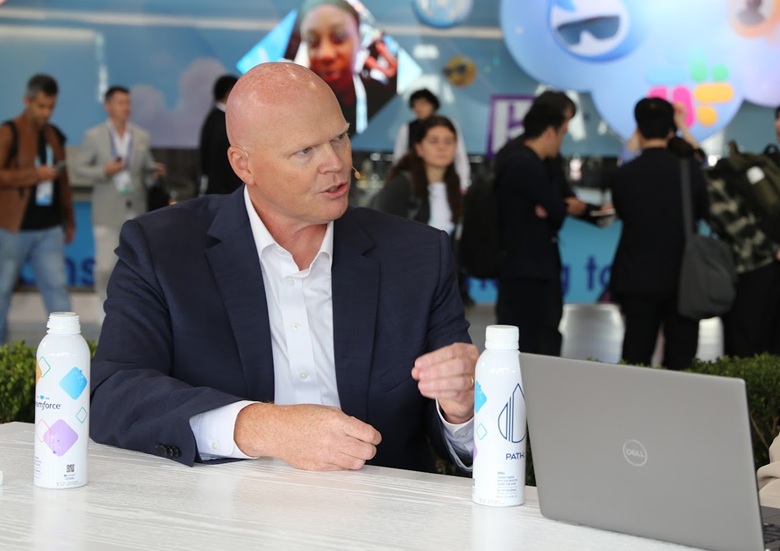The Growing Resignation Among Travelers
Don't look now, but air travelers are paying more and getting less – and they're fine with it.
When Southwest Airlines eliminated its "bags fly free" policy earlier this year, there was a brief outcry from passengers. But then they went right back to booking on the former low-fare carrier – and paying extra for checked luggage.
Here's the reason, according to experts: There's a growing sense of resignation among American travelers. Simply put, they think they deserve both the expensive prices and the extra fees. After all, they kept making booking decisions based solely on price – and the airlines took advantage, making super-low fares prominent but then piling on surprise surcharges.
"It’s disheartening," said Anton Radchenko, CEO of AirAdvisor. "The increasing trend of cutting back on essential services – like free checked baggage or basic seat selection – is undermining what used to be a standard part of air travel."
The notion that travelers deserve to pay more but receive less extends beyond the airline industry. Hotels do it when they start charging their guests for extras that used to be standard amenities, or imposing "resort" fees. Cruise lines do it when they add mandatory tips to your folio. It's been going on for years, but now it's finally stuck, say experts.
But why are people being such pushovers? Is anyone resisting this ridiculous trend? And what can you do about it? It turns out you are not powerless, even though you may think you are.
Why Travelers Think They Deserve to Pay More and Get Less
Why are travelers so accepting of this idea that they should pay more and get less?
"Years of conditioning and poor customer service have led consumers to believe that the travel industry standard is paying more for less," explains Mario Matulich, president of CMP, a customer service consultancy. "Airlines and hotels want consumers to select the lowest upfront price, so they can then nickel-and-dime them with hidden fees on the back end."
Breaking out the extras is something J.D. Power calls disaggregation. It’s driven by the way that consumers shop for airfare. Air travelers have more information than they used to, but fares to a given destination are usually ranked by ticket price, with the lowest first.
"Airlines quickly realized that their airfares needed to be near the top of these lists before consumers would choose their brand," said Michael Taylor, a senior managing director for travel and hospitality at J.D. Power.
So unbundling services could allow the airline to lower the basic fare, causing its flights to rise to the top of the search results.
But there's also a psychological aspect to this. Because travelers choose these low prices, they are often made to feel that they should also accept lower service levels along with higher costs, once you've factored in all these fees. (Airline apologists alternate between praising the "miracle" of air travel and scolding with a "you-get-what-you-paid-for" lecture.)
"Research suggests travelers feel guilty because they've always chosen price over overall service quality," notes Kevin Shahnazari, CEO of the financial advice site FinlyWealth. "But with each instance of customers choosing the lowest fare ticket or bed rate, they inadvertently send the message to businesses that cost is more significant than overall service."
But travelers shouldn't feel responsible or even guilty. Just because someone chooses a lower fare doesn't mean they asked for – or that they deserve – a degraded product at a higher price.
Some Travelers Are Not OK With the New Reality
Not all travelers are comfortable with the "pay more, get less" reality. Frequent, experienced travelers like Stan King don't like this trend. "The whole value proposition has been lost," he said. And he chafes at the idea that passengers somehow deserve less service when they pay a lower price.
King said for him, the only way to escape the reality is to upgrade to a bigger room or a better seat. But even when he does, he said, travel companies are still stingy.
Gerri Hether, a frequent leisure traveler, chafed at the suggestion that somehow she's responsible for the state of affairs.
"How can customers be remotely responsible for junk fees?" she wondered.
However, the reality is this: despite the anger and complaints, travelers continue to buy fares and book rooms from companies that have stopped caring about providing a quality product. And that's all that matters.
What Can You Do to Escape a Buy-More-Get-Less Travel Industry?
This will only end when travelers say "enough," according to industry experts.
- Look for ways to beat the system. "There are measures you can take to get around the service cuts," said Frances Rahaim, a financial coach and consumer advocate. For example, she sidestepped luggage fees altogether by buying an underseat-sized bag and used vacuum seal bags to minimize clothing space, allowing her to fit in more of her belongings. You can also try wearable luggage by apparel companies.
- Reject bad service. "Don't accept service cuts without question," said AirAdvisor's Radchenko. That's especially true if an airline reduces service by downgrading you or canceling your flight, but is required to pay you under the law. Radchenko said that's an area where many passengers are under-informed – and they leave money on the table.
- Find the honest companies and give them your business. "Reward companies with transparent pricing models," said Shahnazari of FinlyWealth. There are still airlines and hotels that don't believe in the pay-more-get-less model, but you have to do some research. Full-service hotels like Marriott and InterContinental still offer a more inclusive experience, and international airlines like Qatar Airways don't nickel-and-dime you for luggage. But they're few and far between.
However, the most effective way to disrupt this dangerous trend is to say "no" whenever you see it, according to experts.
"Passengers have to insist on greater openness and reject nickel-and-diming as the standard," said Deepak Shukla, CEO of Pearl Lemon Adventures, a travel agency.
Do We Have to Accept This?
All of this raises a bigger question: Have customers lost their power? I've been covering the travel industry for three decades, and travel companies – particularly airlines – have consistently tried to charge passengers more while delivering less. And the rest of the travel industry has followed along.
But in the last year, it feels like businesses have felt more empowered to deliver substandard service at a higher price. It also seems as if customers have given them permission, if not their approval. The evidence of that is obvious: They are rewarding these travel companies with their business.
Unfortunately, this will continue until consumers realize that they are the only ones who can reverse course and return to a time when airlines, hotels, and cruise lines delivered quality service at a fair price.
In other words, no one is coming to save you. Maybe we have to save ourselves.







Comments
Join Our Community
Sign up to share your thoughts, engage with others, and become part of our growing community.
No comments yet
Be the first to share your thoughts and start the conversation!